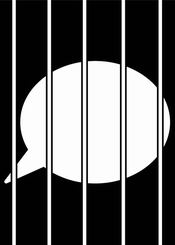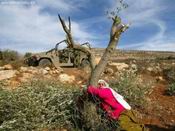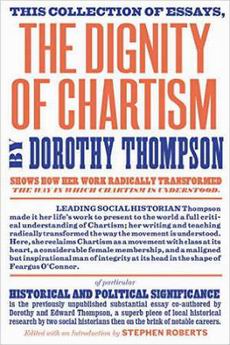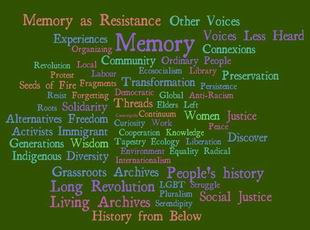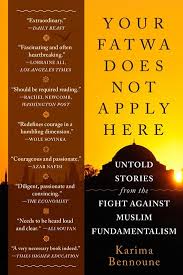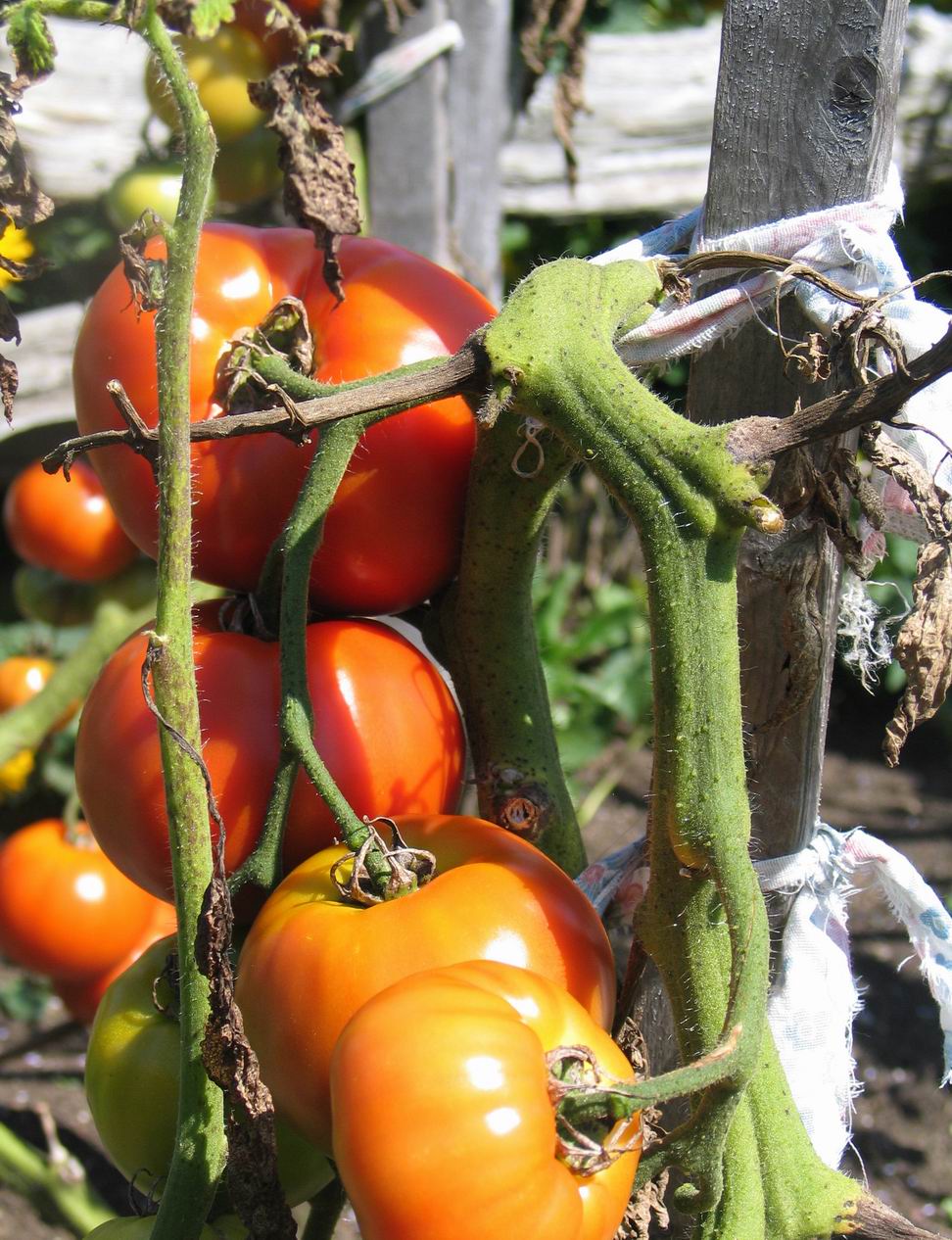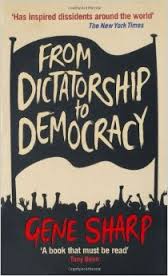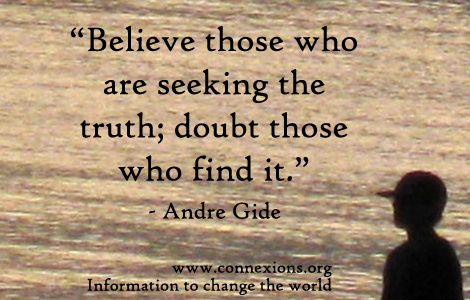If you're having trouble viewing this message, open it in a browser window.
|
|
|
|
|
|
Other Voices: The Connexions Newsletter
December 5, 2015
This week: Ecosocialism, environment, and urban gardening
This issue of Other Voices covers
a wide range of issues, from the climate crisis and the ecosocialist
response, to terrorism and the struggle against religious
fundamentalism, as well as items on urban gardening, the destruction of
olive trees, and how the police are able to use Google's timeline
feature to track you every move, now and years into the past. Another
article challenges the role of big NGOs in legitimizing the status quo
and blocking working-class and grassroots self-organizing
Your feedback is appreciated - and so are donations to keep us doing what we're doing!
As always, we invite you to share this newsletter with your friends. You
can forward this email, or send them the link to the Other Voices home
page on the Connexions website at www.connexions.org/Media/CxNewsletter.htm.
If you'd like to subscribe and receive
this newsletter by email every two week, please use this form.
If you don’t want to receive emails from us anymore, click here to unsubscribe.

|
|
Topic of the Week: Ecosocialism
Ecosocialism
is a movement based on the idea that an ecological society is possible
only on the basis of socialism, and that socialism is only possible if
it is ecological.
Connexions features books, articles, websites, and organizations on ecosocialism.
Explore them here
|
|
|
COP21, the climate crisis, and ecosocialism: An interview with Ian Angus
Ian Angus describes ecosocialism as a movement which includes a
range of opinion, but fundamentally, is composed of people who agree
that there’s no ecological revolution that isn’t socialist, and there’s
no socialist revolution that isn’t ecological. For Marxists, he says,
ecosocialism involves the recognition that the environmental/ ecological
question is the most important problem we face in the 21st century: If
we don’t recognize its centrality, our politics will be irrelevant.
According to Angus, “Unfortunately, a lot of folks on the left seem to
think that the main thing we need to do is separate ourselves from other
activists by focusing on where we disagree. Some people on the left
have gotten so used to being isolated that they are uncomfortable when
the walls start to break down. They feel safer in isolation.” Read More
Keywords: Climate Justice - Ecosocialism
|
|
|
The Useful Altruists: How NGOs serve the status quo
NGOs are far from revolutionary organizations, but many of us
would think that their work still seems more helpful than not. Political
differences with them aside, it seems dogmatic to denounce free health
care and anti-poverty programs. Short of more radical measures, NGOs
seem to serve an important interim function. This articles argues that
in fact, many large NGOs are destructive, both in their current work and
in their preclusion of an alternative future beyond the capitalist
present. They undermine, divert, and replace autonomous organizing and
erase working class struggle and organizing. Read More
Keywords: Non-Government Organizations (NGOs)
|
|
|
Horror Beyond Description: Noam Chomsky on the Latest Phase of the War on Terror
Does the "war on terror" make sense? Is it an effective policy?
And how different is the current phase of the "war on terror" from the
two previous phases that occurred under Ronald Reagan and George W.
Bush's administrations, respectively? Moreover, who really benefits from
the "war on terror"? And what's the link between the US
military-industrial complex and war making? Read More
Keywords: State Terrorism - Terrorism
|
|
|
Free Speech in an Age of Identity Politics
Kenan Malik writes: “Few people are willing to
say ‘I’m against free speech’ or ‘I think censorship is a good’. What
most opponents of free speech say, instead, is ‘I’m for free speech.
But…’ You can say what you like, they insist. Just don’t say anything
that is offensive. Or hateful. Or might make people feel uncomfortable.
Or provoke them. Or is irresponsible. So over the past few years we have
seen the growth of regulations and prohibitions against offensive
speech. The spread of trigger warnings in universities. The predicament
runs far deeper, however, than formal regulations or prohibitions. The
real problem is that we have internalized those prohibitions. We have
come to accept censorship not just because of external proscriptions,
but also because of internal ones, because of a moral horror at the
thought of offending others.” Read More
Keywords: Free Speech - Identity Politics
|
|
|
How Law Enforcement Can Use Google Timeline To Track Your Every Move
The recent expansion of Google's Timeline feature can provide
investigators unprecedented access to users' location history data,
allowing them in many cases to track a person's every move over the
course of years. The expansion of Google's Timeline feature, launched in
July 2015, allows investigators to request detailed information about
where someone has been -- down to the longitude and latitude -- over the
course of years. Read More
Keywords: Electronic Surveillance - Privacy
|
|
|
Destruction of Palestinian olive trees is a monstrous crime
The uprooting and cutting down of over a million olive and fruit
trees in occupied Palestine since 1967 is an attack on a symbol of life,
and on Palestinian culture and survival. A grave crime under
international humanitarian law, the arboricide is also contrary to
Jewish religious teachings. Read More
Keywords: Olive Trees - Ethnic Cleansing
|
|
|
The Dignity of Chartism
When working-class people enter the stage of history, their part is
unrehearsed. They do not emerge with fully formed theories of the world,
and a clear perception of what history demands of them. Their ideas,
their language and the political demands that they make show the scars
and deformities with which the years of oppression have burdened them.
Their desire to make change happen is what makes them dangerous to the
ruling class. Thus the Chartists were considered by governments between
1830 and 1848 as a revolutionary threat. It was a threat that needed to
be met with soldiers and an expanded police force, as thousands of
workers went on strike, rallied, demonstrated and rioted in support of
extending the vote to working-class households, so that the horrors of
poverty pay and child labour in mine and mill might be remedied. Read More
Keywords: Chartism - Democratic Movements
|
|
|
Organizing Immigrant Labour
Ron Verzuh writes about barriers to unionizing the smelter
workers of Trail, British Columbia, during the Second World War. Read More
Keywords: Union Organizing - Workers' History
|
|
|
Book of the Week
Your Fatwa Does Not Apply Here: Untold Stories from the Fight Against Muslim Fundamentalism
Karima Bennoune interviewed 300 people from 30 countries
to report on a largely invisible group of people: Muslim opponents of
fundamentalism.They remain largely invisible, lost amid the heated
coverage of Islamist terror attacks on one side and abuses perpetrated
against suspected terrorists on the other. A veteran of twenty years of
human rights research and activism, Karima Bennoune draws on extensive
fieldwork and interviews to illuminate the inspiring stories of those
who represent one of the best hopes for ending fundamentalist oppression
worldwide. Readmore
Keywords: Islamic Fundamentalism - Resistance
|
|
|
Film of the Week
Plant This Movie
A documentary which explores the growing worldwide movement
to use green spaces and vacant land to grow vegetables instead of grass.
The film explores urban gardening in cities including Havana, Shanghai,
Calcutta, Addis Ababa, Lima, New York, New Orleans, and London. See
Keywords: Land Use - Urban Agriculture
|
|
|
Organizing
From Dictatorship to Democracy
A short, serious introduction to nonviolent struggle, its
applications, and strategic thinking. Gene Sharp presents nonviolent
struggle as a realistic alternative to war and other violence in acute
conflicts. The book also contains a glossary of important terms and
recommendations for further reading. Read more
Keywords: Democratic Movements - Strategies for Social Change
|
Your support is needed to keep Connexions going
All of the
work of the Connexions project is done by volunteers, but our expenses
include rent, phone and computer costs and technical support, as well as
expenses related to our ongoing project of converting printed archival
materials into digital formats. You can make a one time or regular
monthly contribution through the donate page on the Connexions website.
|
Bequests
Many of us have made working for
social justice a lifetime commitment. If you are thinking about leaving
a legacy for social justice that will live on, you might want to
consider leaving a bequest to Connexions in your will. If you'd like to
discuss this option, please contact us: Connexions Archive and Library,
Toronto, 416-964-5735 or
see the Bequest page..
|
November 30 - December 11, 2015
United Nations Climate Change Summit: UNFCCC COP 21. Paris.
December 10, 2015
Human Rights Day.
December 11, 2015
International Mountain Day.
December 18, 2015
International Migrants Day.
December 20, 2015
International Human Solidarity Day.
The Connexions Calendar is an online calendar that exists to
advertise events that support social justice, democracy, human rights,
ecology, and other causes. We invite you to use it to promote your
events. Adding events to the Connexions Calendar is FREE. We'll give you
a username and password which you use to log on. Use the contact form to arrange for a username and password. Read more →
|
December 5, 1837
Outbreak of
rebellion in Upper Canada. Some 500 to 1000 rebels, some armed with
rifles, others with staves and pitchforks, gather at Montgomery’s Tavern
north of Toronto and prepare to march into the city. They are held back
by armed militia, and dispersed by December 8.
December 5, 1955
Start
of the Montgomery Bus boycott, sparked when Rosa Parks was arrested on
December 1, 1955 for refusing to give up her seat on a bus to a white
man. The boycott ends in victory on December 20, 1956. It attracts
national attention and helps to catalyze the national civil rights
movement in the U.S.
December 6, 1848
Harriet Tubman, an African-American slave, escapes her owners
in Maryland and goes to Philadelphia. After escaping, she returns to
Maryland to rescue her family. She makes repeated trips to help other
slaves escape to the northern U.S. and then to Canada, using the network
of activists and safe houses known as the Underground Railroad.
When the Civil War breaks out, Tubman works for the Union
Army, first as a nurse and cook, and then as an armed scout and spy. She
becomes the first woman to lead an armed expedition in the war, the
Combahee River Raid, which frees more than 700 slaves. After the Civil
War she is active in the women’s suffrage movement.
|

Trying to change the world? We can help.
Getting your story across can be an uphill battle when your group is challenging the status quo. Our partner organization SOURCES can help you get your message out. As a SOURCES
member, you have an array of media relation tools at your disposal to
promote your events, books, articles, videos, etc. as well as tools to
get you in contact with those who can help you achieve your goals. The SOURCES news release
service is especially valuable for groups wants to inform the media
(and the public) about their issues. For more information about Sources please click this link.
|
|
Follow us on twitter to stay up to date with company news and other information.
|
|
Like us on Facebook to keep up with our news, updates and other discussions.
|
|
|
Copyright
Connexions 2015. Contents are licensed under a Creative Commons
Attribution Non-Commercial License. This means you are welcome to share
and republish the contents of this newsletter as long as you credit
Connexions, and as long as you don’t charge for the content.
Other Voices: The Connexions Newsletter, is available online here
This issue was edited by Ulli Diemer.
Connexions
812A Bloor Street West, Suite 201
Toronto ON M6G 1L9 Canada
Phone: 416-964-5735
www.connexions.org
Enjoy this issue of Other Voices? Want to share with friends and family? Then we encourage you to share this link. All issues of OtherVoices are available on the Connexions website at www.connexions.org/Media/CxNewsletter.htm
If you don’t want to receive emails from us anymore, click here to unsubscribe.
|
|






